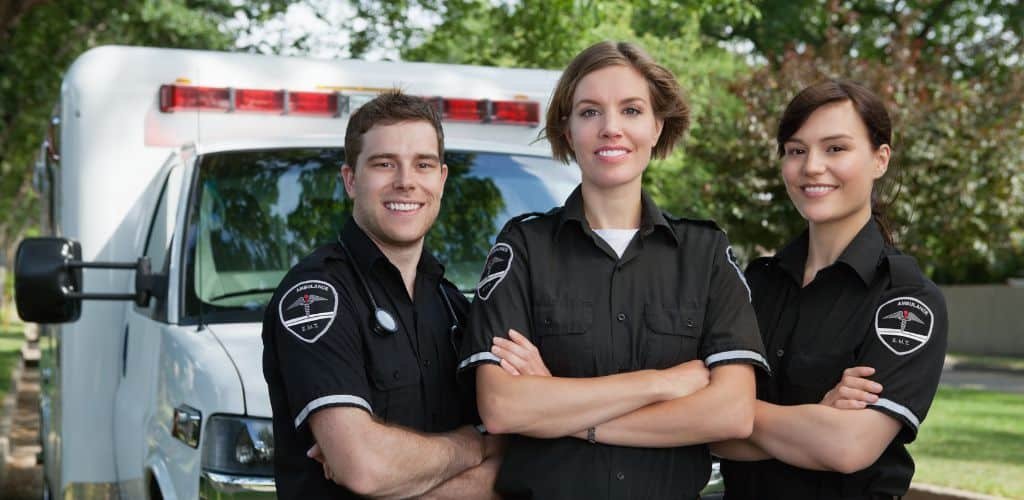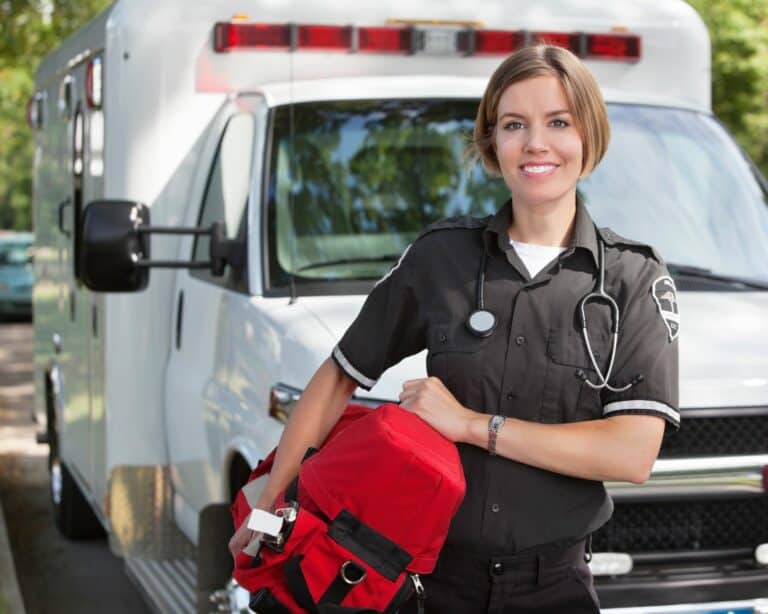Addiction is a serious and complex condition that can wreak havoc on a person’s life. The effects of addiction can be far-reaching. Many people who live with substance abuse or untreated addiction face a range of serious consequences to their mental and physical health, relationships, and security.
Many biological, environmental, and personal factors make it more likely that someone will develop an addiction. One of these is stress.
Most people face some kind of stress on an almost daily basis. It is simply a part of being human. At times, people face periods of intense stress because of challenges, change, trauma, or a difficult situation. In most cases, these stressful periods are short and people have the coping skills to get through them.
However, some people face ongoing, chronic stress that overwhelms their ability to cope. These people are at increased risk of developing substance use disorders or addiction.
First responders–people who work in fields that put them in charge of responding to crises or disasters–are especially prone to chronic stress. The intense, constant, daily stress they are exposed to can cause some first responders to turn to drugs and alcohol to self-medicate.
People working in these intense jobs may need specialized addiction treatment that can address stress and trauma while helping them overcome addiction. At Woburn Addiction Treatment, we can help first responders move past their trauma, cope with stress, and heal from addiction.
Who is Considered a First Responder?
When many people think of first responders, they think of firefighters, police, and EMTs. These are first responders, but many other positions place people in the front line of stressful events, too. Other first responders include park rangers, FEMA workers, animal control, Red Cross workers, and members of the military.
A first responder uses special training and skills to manage threats, dangerous situations, and uncertainty. These events might typically include:
- Fires
- Crimes
- Accidents
- Terrorist attacks
- Natural disasters
The nature of a first responder’s job puts them in near-constant exposure to danger and trauma. While many people used to believe that a certain type of person could handle the stressors of these kinds of jobs, it has become more clear that every person in this kind of job is at increased risk of post-traumatic stress disorder (PTSD), chronic stress, and burnout.

Get The Care You Need and Deserve
Woburn Addiction Treatment is a leader in the addiction treatment field, with proven success in facilitating long-term recovery. Our team of top clinical & medical experts specializes in treating addiction coupled with mental illness, ensuring that each person receives individualized care. Call us – we’re available 24/day, 7 days/week.
Organizations that Support First Responders
After they complete an addiction treatment program, many first responders return to work in stressful environments that may offer little practical or emotional support. They must find sources of support in the community. Here are some reputable organizations that support first responders.
- Badge of Life: This organization offers psychological help for law enforcement officers with the goal of reducing suicide and substance abuse in this population.
- Blue Wall Institute: This organization provides education for first responders about reducing and managing stress.
- Code Green Campaign: The goal of this organization is to change the culture around mental health for first responders. It helps connect people in these roles with mental health care.
- Journal of Emergency Medical Service (JEMS) Responder Resilience: This online resource aims to improve mental health in veterans to reduce suicides and substance abuse.
- Safe Call Now: This 24/7 resource provides confidential help for first responders experiencing a mental health crisis. They offer referrals to mental health and addiction treatment professionals.
First responders do not have to manage stress or substance abuse alone. Treatment and support are available.
Understanding the Need for Addiction Treatment for First Responders
It is impossible to go through life without experiencing some level of stress. Minor stress is a daily occurrence for most people. Most people will also experience a few traumatic events in their lifetime. These events will require extra support and coping skills. A first responder is exposed to significant trauma frequently–sometimes daily–while working in the field. As a result, many first responders live with chronic stress, trauma, and PTSD that can affect their ability to cope and function in their daily lives if left untreated. This can lead to developing or worsening mental health issues and using drugs or alcohol to cope. Using substances to numb the pain of mental health symptoms may feel effective in the short term, but it is not a healthy way to manage stress. Many substances worsen depression and anxiety and keep people from participating in effective self-care or treatment. It can also quickly lead to a life-threatening addiction. To recover from addiction and learn the coping skills that can help them manage stress and trauma healthily, first responders require treatment for their stress and trauma alongside addiction treatment. Addiction treatment happens in stages and involves a combination of evidence-based and holistic therapies. These include:
- Medically supervised detox with supervision and treatment for withdrawal symptoms
- Individual therapy
- Group support sessions
- Education
- Medications
- Family therapy
- Holistic therapies like yoga, acupuncture, art, music, nutrition, exercise, meditation, and other healing practices
Since many first responders return to their stressful jobs after treatment, it is especially important to focus on ongoing treatment and support. They must develop an aftercare plan that includes self-care, therapy, and group support.
Learn More About Addiction Treatment for First Responders
First responders require comprehensive, sensitive addiction treatment. At Woburn Addiction Treatment, we offer a range of programs and support services that can help first responders overcome addiction and live healthier, more satisfying lives.
Don’t wait another day for the treatment you need and deserve. Call today to get started.


